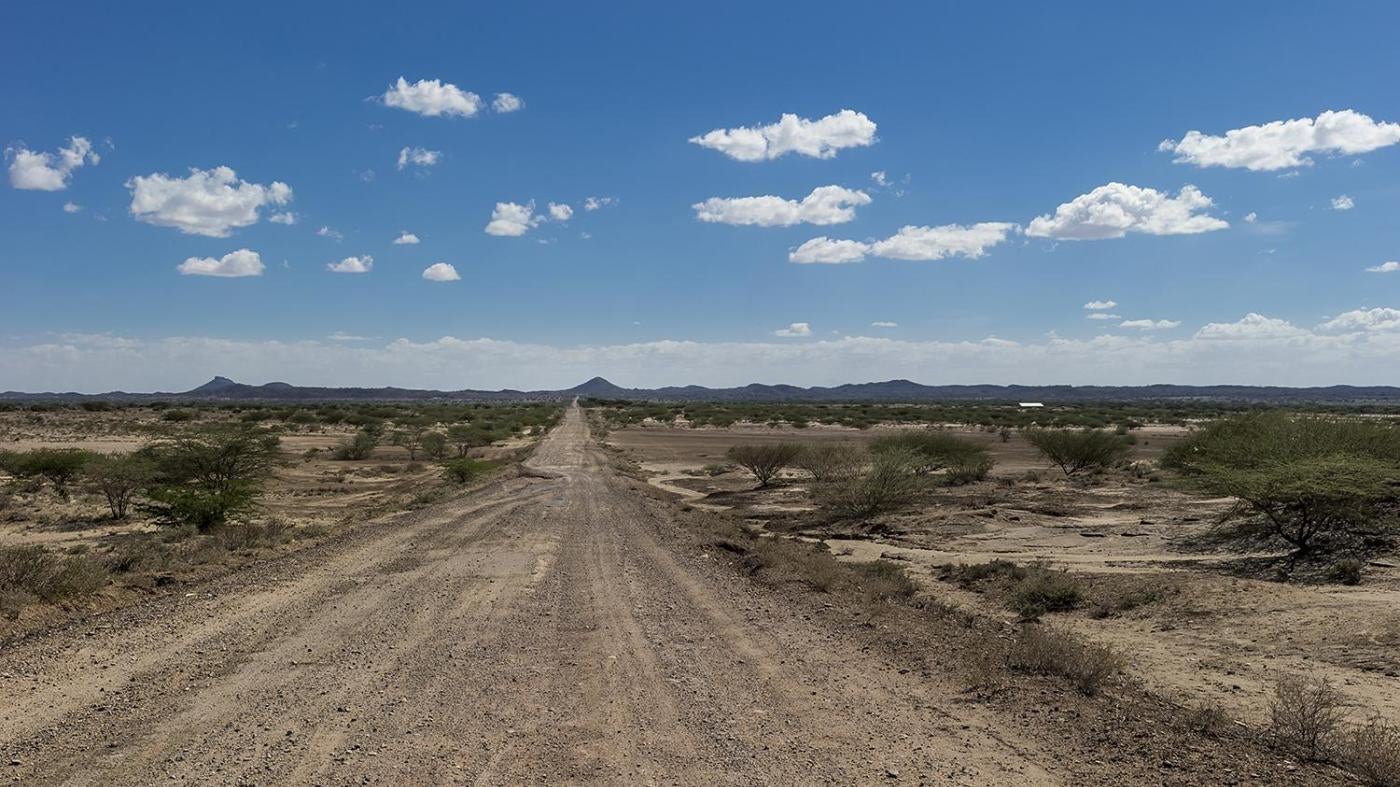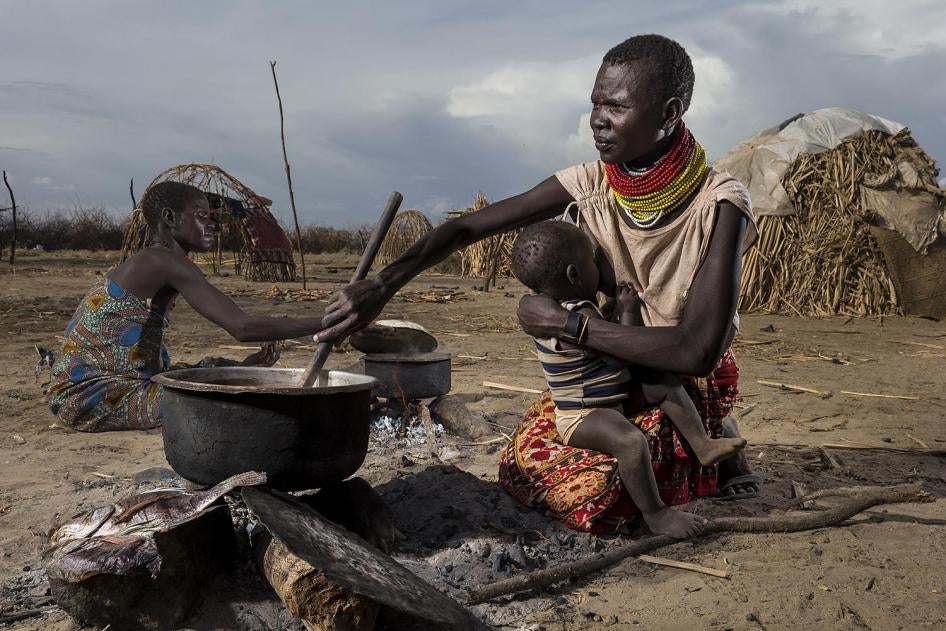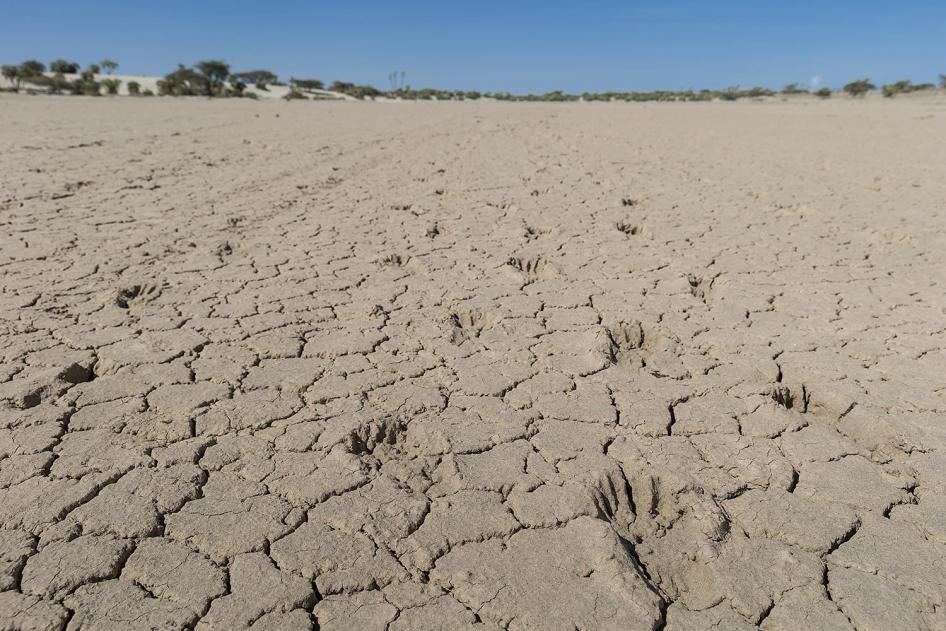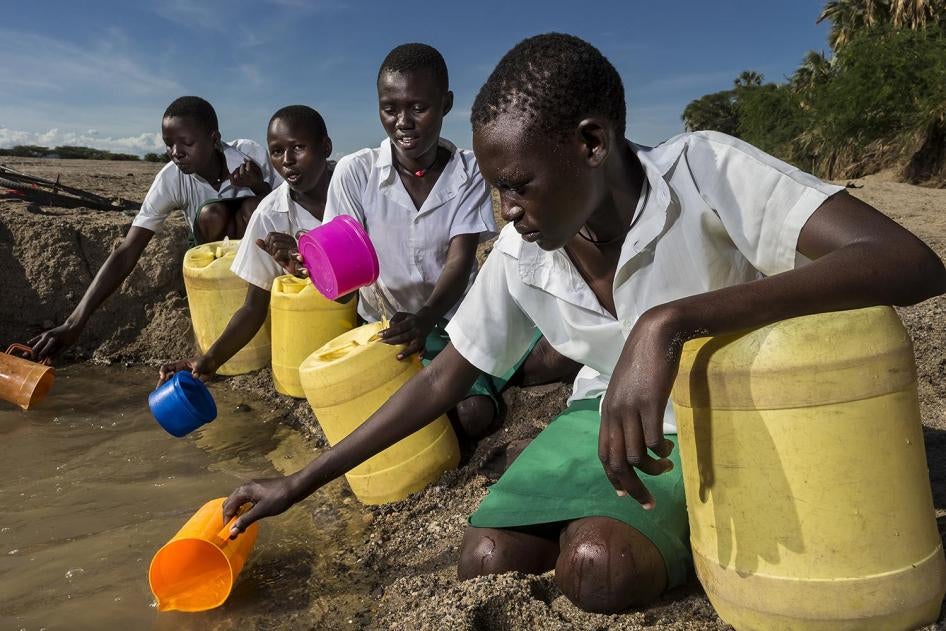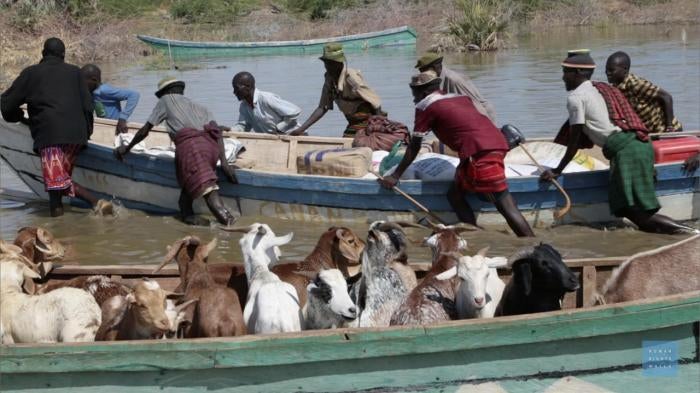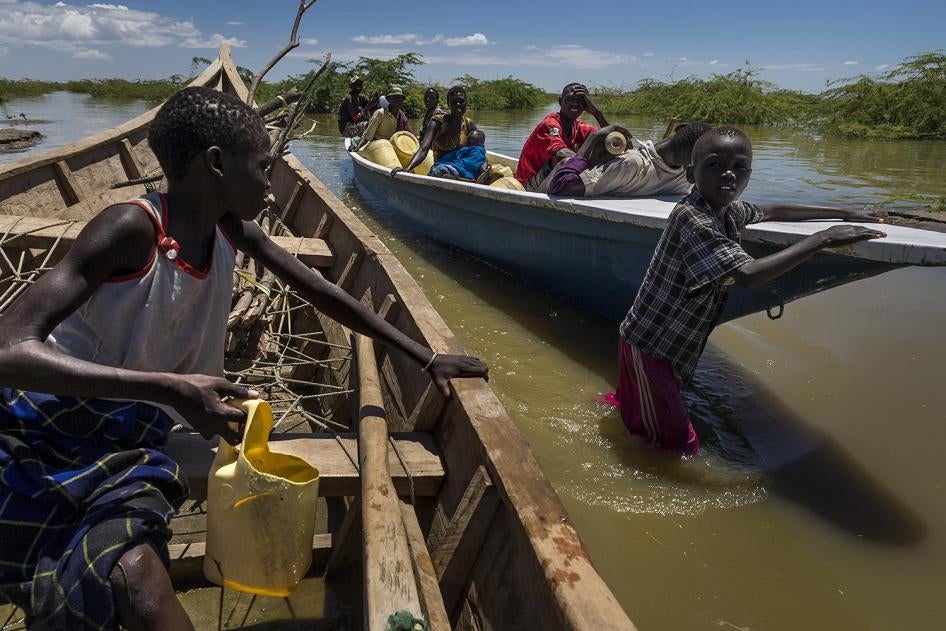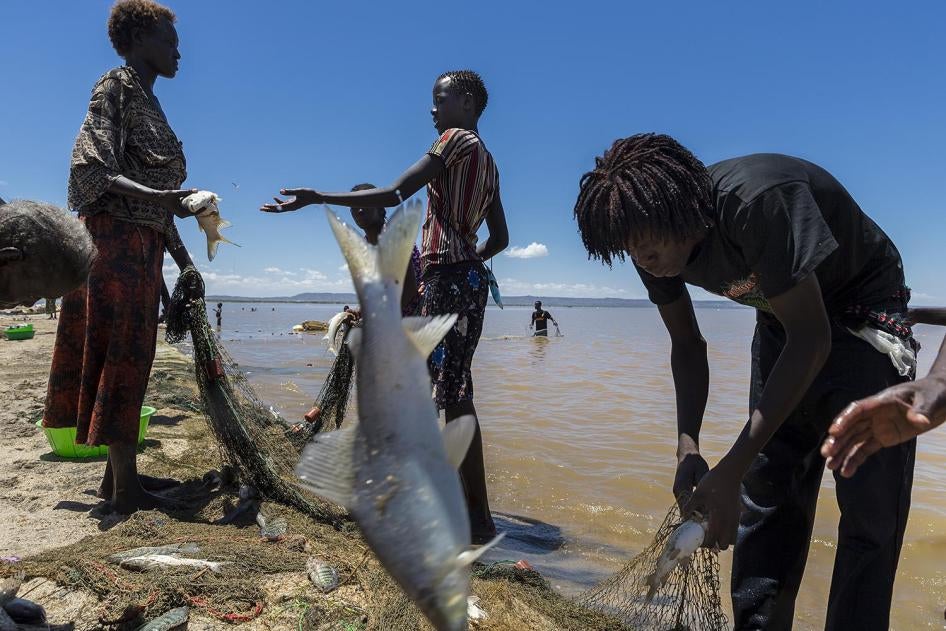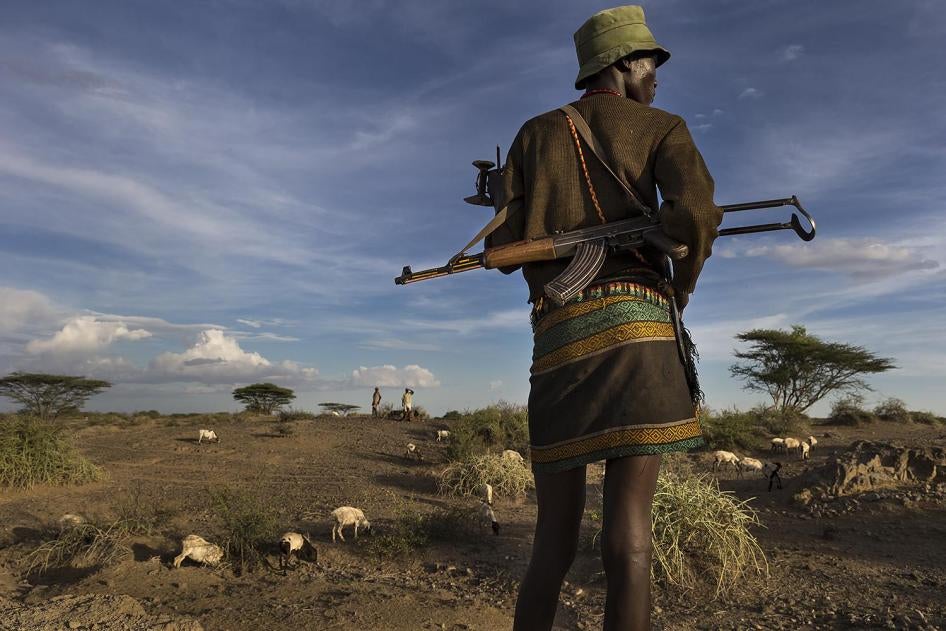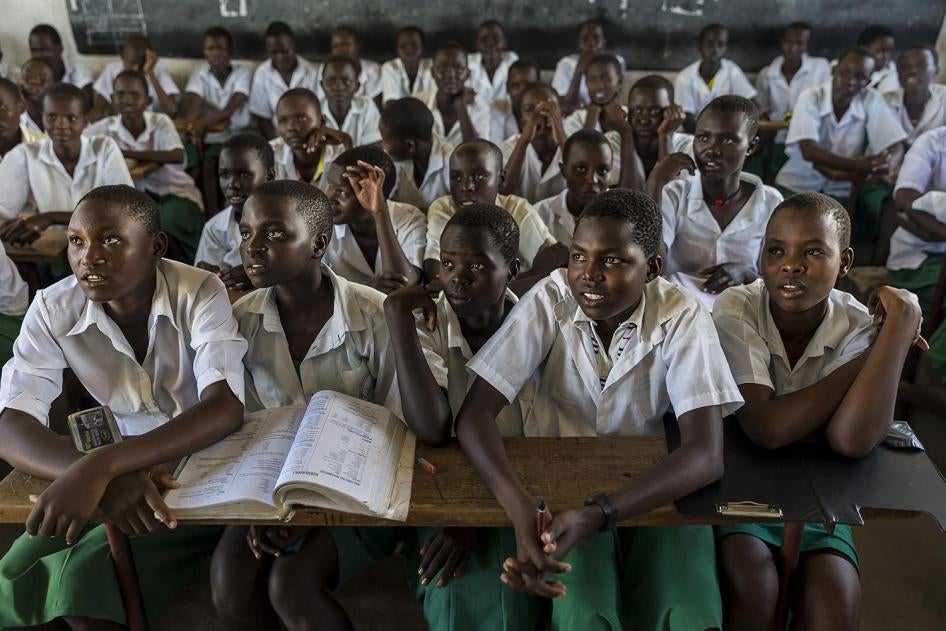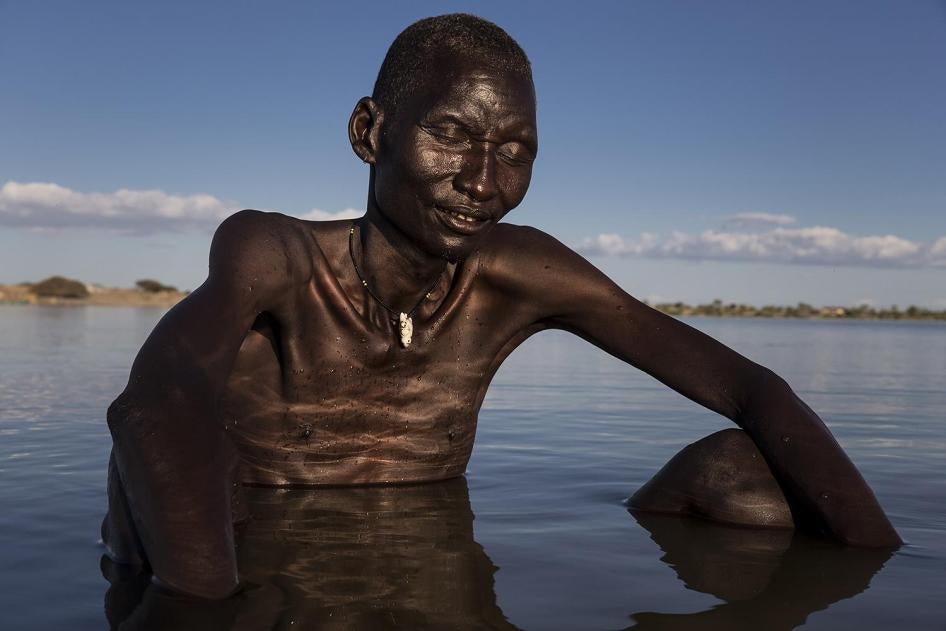Kenya’s Lake Turkana is the largest desert lake in the world. Anthropologists consider it the cradle of civilization, where some of the earliest hominid fossils were found. Roughly 300,000 people live around Lake Turkana, and most sustain themselves by herding goats and cattle or fishing. But changes in the climate, combined with large-scale development in nearby Ethiopia, could affect both the land and lake, leaving it a barren desert. Researcher Felix Horne speaks with Amy Braunschweiger about the new report and how these changes are pushing Turkana’s indigenous people to the brink.
What is the landscape of the region around Lake Turkana?
The Turkana region is beautiful, but very stark. When you walk around, you’re just struck by how dry and arid it is. During the dry season there’s little vegetation, and little grass. When the wind picks up at night, you’re inhaling dust. It’s very hot -- 40, 45 degrees Celsius, and you can’t imagine how livestock and people live here. When it rains there, as soon as the water hits the ground it just disappears. It doesn’t pool. There are poofs of dust as the raindrops hit the ground and it’s gone. It’s such a contrast to turn your head and see this striking lake.
Temperatures in Turkana increased 2 to 3 degrees Celsius between 1967 and 2012, a rate far greater than in other regions of the world. And rainfall patterns seem to have changed, with the long rainy season becoming shorter and drier. The grass isn’t as long, the grazing lands aren’t as big, so there’s more competition for grazing lands, and tribes are increasingly fighting over them.
Turkana has always been dry and arid, it’s always been tough to find water there – Lake Turkana is a salt water lake, you can’t drink it. Yet, our research shows it’s becoming more and more difficult to survive there.
Who lives near the lake?
People there generally survive in two ways – pastoralists, who herd camels, cows, goats and donkeys, and fishermen, who rely on the lake.
The pastoralists are the most affected by the changing climate. With inadequate rain, families who used to have hundreds of goats now have two or three. Many have no more animals at all.
One man I spoke with was talking about how he valued his animals, how they were the most important things in his life. I asked him where his animals were, and he pointed off to the horizon and said, “All my animals are dead.” I turned around and looked and there were literally vultures circling overhead where he was pointing.
Although there is less rain overall, people told us that when it does rain, it now falls very hard. When rain falls softly and slowly, the water has a chance to sink into the ground, replenishing groundwater supplies. This water can be reached by digging a shallow well. However, when rain falls hard, it just runs down to the lake. This means people have to dig much deeper to find water.
Many of the pastoralists I met with looked to be 75 or 80 years old, but were often 45 or 50. Many looked malnourished. In times of drought, they have turned to the lake, where they’d catch fish to make enough money to buy animals and go back to herding, because that’s what they prefer to do.
What about the fishers?
People who fish are, in general, better nourished. The lake provides an enormous economic boost to the region in terms of exported fish, as well as benefits to those working and sustaining themselves and their families by fishing.
But the lake is also in danger. Ninety percent of Lake Turkana’s water comes from the Omo River, which originates in nearby Ethiopia. Ethiopia recently built Africa’s tallest dam on the river, upstream of the lake, to produce more electricity. Over the last six months the reservoir behind the dam has begun to fill and we can expect lake levels to begin to drop.
Ethiopia is also taking the land along the Omo River’s banks and converting it into sugar plantations. Right now, they’ve only planted about 10 percent of the land they plan to use. But when the rest is planted, the water from the river will be used to irrigate the fields. Lake Turkana could virtually disappear.
What do you think will happen as people compete for ever-scarcer resources?
The Turkana have a long history of conflict with nearby ethnic groups. But in the past few years there seems to be an increase in the amount of violence and the types of violence. And more guns are available because of the civil war in nearby South Sudan.
The Turkana are afraid of the Daasanach, Ethiopian tribes who are being forced from their lands along the Omo River’s banks to make way for sugar plantations, and whose grazing lands have dried up in the changing climate. The Daasanach are crossing the border into Kenya and attacking the Turkana. My first time in Turkana, I visited a village that had been raided by the Daasanach. They stole all 100 of the villagers’ cows and killed a person. So this community was moving south from their traditional grazing land. On my second visit, they had moved even further south, as the Daasanach had begun stealing their fishing gear as well.
What should Kenya do?
Kenya should push Ethiopia to do environmental impact studies on the dam and sugar plantations. Kenya’s government protested when Ethiopia first began building the dam, but that stopped when the two countries signed an electricity agreement.
Kenya should also support vulnerable communities such as the Turkana people to adapt to climate change. Kenya, of course, is not responsible for most of the greenhouse gas emissions that have caused climate change. But it still has a duty to protect the rights of its citizens who are most affected. For this to happen, Kenya should speedily develop and implement adaptation policies that put marginalized populations most affected by climate change at the center.
There are other development opportunities in Turkana County. For example, oil has recently been found, which in theory could foster development, so long as local people’s rights are protected and the development benefits the Turkana. And there are potential spinoffs from the oil that could benefit the county. For example, new roads may be built to support the oil and gas industry that could make it easier for the Turkana to access health care and bring their animals to market.
Also, an aquifier, essentially a massive underground lake, was discovered in Turkana County. It is estimated that it has enough water to supply Kenya’s water needs for 70 years – if the water is potable and fit for human consumption, as it may be very salty. The government is already looking at ways to commodify it, but government officials should be looking at the Turkana’s needs first.
What should the international community do?
We want the international community to make human rights central in the new climate change agreement, which will be negotiated in Paris at the end of the year.
People should begin looking at climate change through a human rights lens. People have a right to water – clean drinking water and water for bathing. They also have a right to food. You can see with the Turkana how patterns of food distribution are changing. And people have a right to health – if you’re malnourished, you’re more susceptive to all kinds of diseases. Increased temperatures also mean mosquitoes are breeding at higher elevations, increasing the risk of malaria and other mosquito-borne disease transmission.
For the Turkana, everything comes back to the lake. As one Turkana elder I spoke with said: “If the lake dies, our way of life will die along with it too.”
This interview has been edited and condensed.
